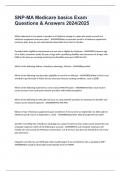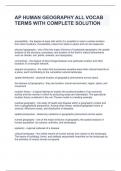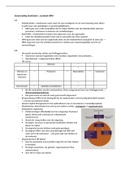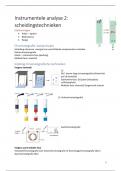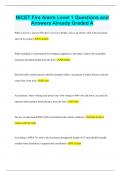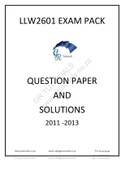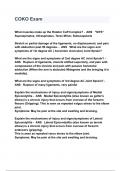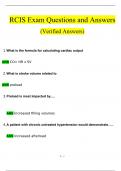Examen
PYC4809 Assignment 3 (Portfolio) 2024 | Due 25 September 2025
- Cours
- Établissement
- Book
PYC4809 Assignment 3 (Portfolio) 2024 | Due 25 September 2025. Questions answered with references. Task 1: Case study READ THE FOLLOWING CASE STUDY AND ANSWER THE QUESTIONS THAT FOLLOW: Case study Karen: Anxiety over choosing for herself Assume the perspective of a Gestalt therapist, and sh...
[Montrer plus]





